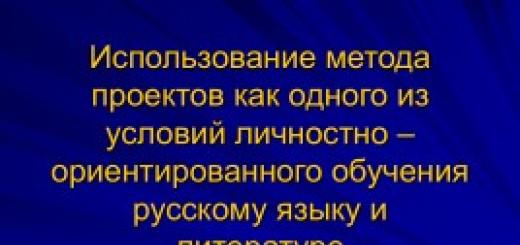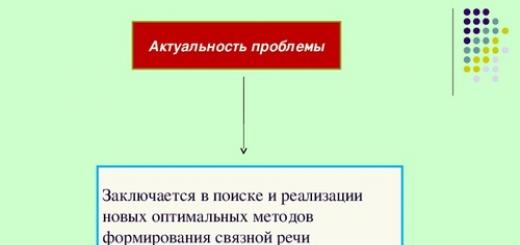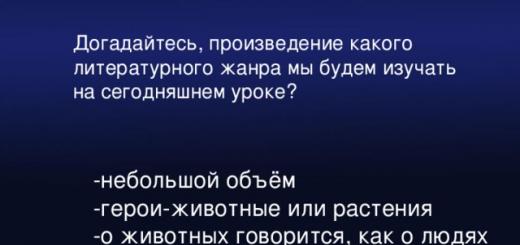The tongue is the main organ of speech, helping to pronounce sounds and words. Even though it is boneless, it still needs to be trained. After all, thanks to him we can speak, and in order to do this correctly, articulation exercises are necessary. If little time and attention is given to training, then the adult and child cannot communicate with everyone properly. As a result, a violation occurs on the psychological, as well as emotional level. A variety of complexes are purchased.
Therefore, it is important to work with children already from early age. Gymnastics, which includes articulation exercises, helps significantly in this matter. Two-year-old children begin to speak faster, and older children correct existing shortcomings in their speech.
Adults also need to develop their speech throughout life. To do this, it is important to read aloud a lot and use different exercises.
Tasks for speech development
1. Articulation - what is it? First of all, help. It helps to correct and prevent correct pronunciation speech. In addition, it improves oratory abilities.
3. Needs to be replenished lexicon both adults and children.
4. Development of auditory attention, as well as phonetic hearing.

Exercises for speech development
Articulation - what is it? At its core, this is the correct functioning of the tongue and this means that these muscles need to be improved so that they are not weak. In this regard, classes should be conducted daily to tone the organs involved in the pronunciation of sounds and words. Such activities take little time. Otherwise, children will quickly get tired and will not want to study at all. Adults, due to their busyness, simply will not be able to spend much time on their self-improvement. The complexity of the exercises is selected depending on the level at which the person is currently.
Correct activities
The articulation of speech sounds must be performed in a certain sequence. If we are talking about children, it is preferable to take into account the age of the child. First, you should tell him stories and a fairy tale that correspond to the theme of the exercises. Then you can show the technique itself. Next, the baby should try to repeat it, while controlling the movement of the speech organs in front of the mirror. It is important to monitor him at this moment in order to immediately correct any inaccuracies.
An adult is also required to do exercises in front of a mirror, trying to do everything correctly. Pronounce syllables and sentences, controlling the process.
When can you start exercising?
When it comes to children, training can begin as early as three months. Here they are simply pronounced different sounds. Phonetics helps the baby learn to distinguish between voice tones. When the child begins to babble, the next stage begins. Words and sounds are already spoken here. After the baby has already learned to speak, more serious articulation of speech sounds begins.

For adults, the program is much more complex and extensive. Here the focus is not only on the development of speech, but also on its improvement.
To pronounce sounds
A common problem is the pronunciation of the “R” sound. To eliminate it, you need to exercise for ten minutes every day. Of course, it is better to start the fight from childhood. Classes will help your baby’s tongue become flexible, mobile, and will also facilitate easy pronunciation of other sounds. It is important, first of all, to come up with a scenario so that the child finds it interesting, and then the game begins.
1. The essence of the first exercise is to imagine that the baby is riding a horse. You should ask him: “Do you know how she clatters her hooves?” Let the child repeat after the adult the sound of the horse's hooves clicking.
2. The next exercise is a smooth transition from the first. Here the child finds himself in the poultry yard and sees a turkey. You need to ask: “How does this bird talk?” “Bl-Bl-Bl” the child must repeat after the adult.

Pronunciation of sounds in adults
When trained, good articulation appears. Those around you understand perfectly well that this is pronounced. There are also special exercises for clear speech.
1. You need to raise your eyebrows, hold on and close your eyes sharply. Then stretch your lips into a tube, and then smile. This helps control the facial muscles.
2. The next task is to move your jaw in different sides. Having opened your mouth, you need to start moving your jaw to the right, and then to the left. Then pronounce different syllables, changing the tone of your voice.
3. Then start yawning, while pronouncing the sounds “AHH”, “OHH”, “UHH”.
4. It is also necessary to recite poetry, stories and prose aloud. This helps develop clarity, which makes the articulation of speech beautiful and correct.

Exercises in verses
Articulation - what does it mean? Most likely, when adults and children speak correctly and pronounce sounds, the phonetics are clear and understandable. In this regard, you should learn different poems and tell stories. If classes are conducted with children, then toys will help you come up with scenes and use them to act out the plot. You can organize concerts at home, so that the baby, standing in the center, recites poems, sings songs, or simply communicates with everyone. For adults, this method will also help them relax, train their speech, and get rid of many complexes, for example, embarrassment to speak in public. The main thing is to devote a lot of time to your studies and have a great desire to speak correctly.
from lat. articulo - pronounce articulately) - the joint work of the speech organs necessary to pronounce speech sounds. A. is regulated by the speech zones of the cortex and subcortical formations of the brain. For correct pronunciation of each sound, a certain system of movements of the speech organs is required, which is formed under the influence of auditory and kinesthetic (speech motor) control over the correct pronunciation, carried out through a feedback mechanism. Different languages, with some elements of similarity, also have their own characteristics, and often similar sounds are articulated in different languages variously (Russian t, English and German (; Russian e, e and e in Western European languages, etc.).
The formation of correct arithmetic is closely related to the development of phonemic hearing. His underdevelopment or general disorder(for the hearing impaired) makes it difficult to master correct A. Distorted pronunciation speech sounds m.b. is caused by a violation of the central nervous regulation of the muscles of the speech organs, which occurs when the lower parts of the postcentral region of the cortex of the left hemisphere are damaged (see oral apraxia in the article Apraksin), as well as due to defects of the articulatory apparatus itself. A. disorders are characteristic of dysarthria.
ARTICULATION
the joint work of the speech organs necessary to produce speech sounds. Articulation is regulated by the speech zones of the cortex and subcortical formations of the brain. For the correct articulation of each sound, a certain system of movements of the speech organs is necessary, which is formed under the influence of auditory and kinesthetic (speech motor) control over the correct pronunciation, carried out through a feedback mechanism. Different languages, with some elements of similarity in articulation, also have their own characteristic features, and often similar sounds are articulated differently in different languages (Russian “m”, English and German “t”; Russian “e”, “e” and “e” in Western European languages etc.). The formation of correct articulation is closely related to the development of phonemic hearing. Its underdevelopment or general impairment (in the hearing impaired) makes it difficult to master correct articulation. Distortion of the pronunciation of speech sounds may be due to a violation of the central nervous regulation of the muscles of the speech organs, which occurs when the lower parts of the postcentral region of the cortex of the left hemisphere are damaged, as well as due to defects in the articulatory apparatus itself.
ARTICULATION
articulation) - 1. In anatomy, a point or type of connection between two bones. See joint. 2. The joint activity of the vocal cords, tongue, lips and other organs for articulate speech.
Articulation
Word formation. Comes from Lat. articulo - I pronounce clearly.
Specificity. Coordination of the action of the speech organs when pronouncing speech sounds. When pronouncing a certain sound, auditory and kinesthetic, or speech motor, control is realized. Underdevelopment of phonemic hearing (for example, in the hearing impaired) significantly complicates the acquisition of correct articulation.
Conditioning. Articulation is carried out by the speech zones of the cortex and subcortical formations of the brain.
In this article we will look at the basic concepts associated with articulation (the joint work of the speech organs necessary to pronounce speech sounds).

Dorsal called a style in which the tip of the tongue is at the base of the lower teeth. The back of the tongue is arched. The place of articulation is at the tip of the tongue and the lower teeth.
Apical is called a position in which the tip of the tongue is on the most convex part of the alveoli. The place of articulation is at the tip of the tongue and the convex part of the alveoli.
The place of articulation is where the bow occurs and sound is created.
Pronunciation- the process of clear and correct sound and intonation design of a statement.
Articulation- the position and movements of the speech organs, which in their interaction pronounce the sounds of the language.
Pronunciation includes concepts such as:
- Intonation (stress, rhythm, timbre, pause, tempo)
- Articulation (speech organs)
Movable (tongue, lips, soft palate)
Fixed (teeth, alveoli, hard palate)
Features of the construction of the speech apparatus:
- Power mechanism: diaphragm, lungs, trachea, larynx, oral cavity, nasal cavity
- Vibration mechanism: vocal cords
- Resonator: nasal cavity, oral cavity, pharynx
- Mechanism that forms an obstacle to the passage of air: tongue (tip, anterior, middle, posterior part of the tongue), lips, teeth, soft palate and uvula, hard palate and alveoli.
Rhythm- a combination of stressed and unstressed syllables and relative speed their pronunciations.
It is necessary to distinguish phrasal emphasis and logical:
Phrase stress - both in Russian and in English language a number of words lose their emphasis in a sentence (mainly function words, prepositions, conjunctions, pronouns).
Logical stress - unlike phrasal stress, often the main semantic load falls on one word (and even on function words). When it changes logical stress the sentence changes its purpose, that is, it answers different questions.
Rhythm English speech characterized by the fact that stressed syllables follow each other at more or less regular intervals, regardless of the number of unstressed syllables between them, therefore, the more unstressed syllables between two stresses, the faster each of them is pronounced.
In English, two or more stresses are possible within a word, but in Russian there is only one.
Was the article useful? Click on the button below and save it to your social network;)
Articulation Etymology.
Comes from Lat. articulo - I pronounce clearly.
Category.Form of motor skill.
Specificity.Coordination of the action of the speech organs when pronouncing speech sounds. When pronouncing a certain sound, auditory and kinesthetic, or speech motor, control is realized. Underdevelopment of phonemic hearing (for example, in the hearing impaired) significantly complicates the acquisition of correct articulation.
Conditioning.Articulation is carried out by the speech zones of the cortex and subcortical formations of the brain.
Psychological Dictionary. THEM. Kondakov. 2000.
ARTICULATION
(from lat. articulo - I pronounce clearly) - the joint work of the speech organs necessary to pronounce speech sounds. A. is regulated by the speech zones of the cortex and subcortical formations of the brain. For correct pronunciation of each sound, a certain system of movements of the speech organs is required, which is formed under the influence of auditory and kinesthetic (speech motor) control over the correct pronunciation, carried out through a feedback mechanism. Different languages, with some elements of similarity, also have their own characteristic features, and often similar sounds are articulated differently in different languages (Russian). T, English and German t; Russian e,uh And e in Western European languages, etc.).
The formation of correct A. is closely related to the development phonemic hearing. Its underdevelopment or general impairment (in the hearing impaired) makes it difficult to master correct A. Distorted pronunciation of speech sounds may. is caused by a violation of the central nervous regulation of the muscles of the speech organs, which occurs when the lower parts of the postcentral region of the cortex of the left hemisphere are damaged (see. oral apraxia in the article ), as well as due to defects in the articulatory apparatus itself. A. violations are typical for dysarthria.
Big psychological dictionary. - M.: Prime-EVROZNAK. Ed. B.G. Meshcheryakova, acad. V.P. Zinchenko. 2003 .
Synonyms:See what “articulation” is in other dictionaries:
ARTICULATION- (anat.) connection of members. Dictionary foreign words, included in the Russian language. Pavlenkov F., 1907. ARTICULATION (lat., from articulus joint). 1) articulation of bones, joint. 2) in phonetics: the formation of language sounds and their pronunciation through... ... Dictionary of foreign words of the Russian language
Articulation- Articulation: In linguistics: Articulation (phonetics) (or Method of formation of consonants) Place of formation of consonants In music: Articulation (music) Articulation in music Other: Articulatory base Articulatory gestures Articulatory apparatus ... Wikipedia
articulation- reprimand, pronunciation Dictionary of Russian synonyms. articulation see pronunciation Dictionary of synonyms of the Russian language. Practical guide. M.: Russian language. Z. E. Alexandrova ... Synonym dictionary
ARTICULATION- (in communications technology) a measure of the quality of communication systems designed to transmit voice information; is determined by the ratio of correctly received speech elements (sounds, syllables, words, phrases) to all transmitted ones and is expressed in %. For example, in systems... ...
ARTICULATION- in music, a method of performing a sequence of sounds on an instrument or with the voice. The main types of articulation are legato, staccato, portamento, glissando. Technically related to the techniques of moving the hand (its parts) when holding the bow, striking the key, and... ... Big Encyclopedic Dictionary
ARTICULATION- (from Lat. articulo I dissect) the work of the speech organs performed when pronouncing a particular sound; degree of clarity of pronunciation... Big Encyclopedic Dictionary
Articulation- coordination of the action of the speech organs when pronouncing speech sounds, which is carried out by the speech zones of the cortex and subcortical formations of the brain. When pronouncing a certain sound, auditory and kinesthetic, or... ... Psychological Dictionary
ARTICULATION- ARTICULATION, articulation, female. (lat. articulatio) (ling.). The work of the speech organs necessary to produce speech sounds. Dictionary Ushakova. D.N. Ushakov. 1935 1940 … Ushakov's Explanatory Dictionary
ARTICULATION- ARTICULATION, and, female. In linguistics: the work of the speech organs when pronouncing a sound. | adj. articulatory, oh, oh. Ozhegov's explanatory dictionary. S.I. Ozhegov, N.Yu. Shvedova. 1949 1992 … Ozhegov's Explanatory Dictionary
ARTICULATION- a method for measuring the quality (intelligibility) of telephone transmission. Reduced intelligibility and distortion of telephone transmissions are caused by uneven attenuation of sounds of different tones in the line and devices. To determine the magnitude of distortion, use method A ... Technical railway dictionary
Books
- Articulation of sounds in a graphic image Buy for 120 UAH (Ukraine only)
- Articulation of sounds in a graphic image. Educational and demonstration material. We present to your attention 46 diagrams that show the position of the articulatory apparatus during the pronunciation of vowels and consonants (voiceless and voiced, hard and soft) sounds. In Russian…
Articulation is a concept that refers to how correctly and clearly you pronounce sounds. Beautiful speech is important for everyone, no matter whether you are an announcer or an ordinary office worker. And for its competent construction it is imperative to master the basics of articulation.
Articulation in Russian, as in all others, consists of several stages.

- The excursion is the beginning, the very first stage, which marks the preparation of parts of the speech apparatus for pronouncing a sound.
- Exposure is how you pronounce a sound. In this case, it is important to take into account the position of the speech apparatus - it must meet the standards.
- Recursion is the final stage. The speech apparatus completes its work, its components go into a state of rest or prepare to pronounce the next sound.
However, such a clear sequence of events is typical only for the pronunciation of one sound. It would look as clear as in the diagram if a person were to pronounce the sounds individually.
In real, everyday speech, the stages “overlap” each other, their clarity is blurred. The excerpt often merges with the recursion of the previous sound. A person does not have time to thoroughly prepare the organs for pronouncing a sound, so the excursion is not expressed as it should. Because of this, speech becomes slurred.
This does not mean that you should clearly pronounce each sound or highlight it with intonation. This would simply be impossible; communication would be difficult. Correct pronunciation requires that you first learn the theory, learn to apply it, and then it becomes an unconditioned reflex.
Let's consider this using the example of pronunciation of the sound “T”. Problems often arise with it because people who are not prepared for correct pronunciation express the sound too indistinctly. It comes out hoarse and compressed.
Here's how to pronounce the "T" sound:
- Watch the air-tongue pair. The air should not be directed at the ligaments, because in this case you will get the hoarse version mentioned above.
- Direct the air stream directly towards your tongue.
Practicing the pronunciation of this sound allows you to improve not only pronunciation, but also increase the elasticity of the tongue, and give good training to the speech apparatus.
You are already familiar with the theory of pronunciation of the sound “T”. At first, you will monitor for a long time how it sounds in your everyday speech, but then, when you are convinced that you speak correctly, this information will be fixed, you will no longer have the need to correct yourself and monitor yourself.
Articulation gymnastics
What it is? This type of gymnastics is designed to warm up the muscles. These exercises do not have to be performed at any specific time of day. You can easily apply them from time to time because they are simple and do not require much attention.

Gymnastics for the cheeks includes the following exercises:
- Imagine that you are a hamster. You need to take in air from one cheek, then smoothly “displace” it under your lower lip, without ever opening your lips. Then move to the other cheek, the outermost one. This cycle needs to be repeated several times.
- The next exercise is similar to the previous one in that you again need to use air. Place it in your mouth and puff out your cheeks. Close your lips tightly. Now you need to try to push the air out, but under no circumstances open your mouth! You will feel a slight pressure that will warm your cheeks well.
In order to warm up the lower jaw, you can use one simple exercise that many people do unconsciously. You can just move lower jaw in a circle, back and forth, thereby preparing her for correct diction. You need to be careful here, as you can accidentally dislocate your jaw. Do not overdo it.
Have you ever tried yawning with your mouth closed? If not, be sure to try it. This will help warm up your palate. Another way is to copy the mouth rinse. If it’s hard to imagine, then first actually rinse your mouth, and then imitate these movements yourself. Over time, you will begin to succeed.
After completing these tasks, you can move on to exercises to improve articulation, which depend on the problem sounds that you have. There is a special one, and many others, which you can find on this site. Some people have enough simple development speech apparatus, because for many it is weak, so it needs training. The exercises above will help correct the situation.
Articulation allows you to learn how to correctly pronounce not only problematic sounds, but also everything that is in the Russian language, because most people do not even suspect that they pronounce certain sounds incorrectly.










